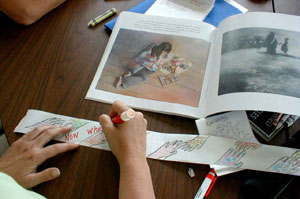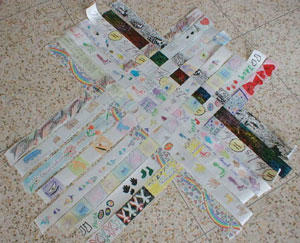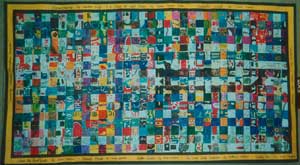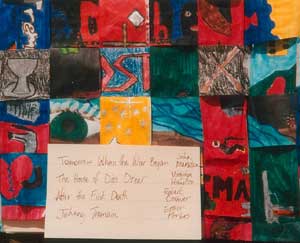| Literature Circles Resource Center | |
| home | site map | structure | books | discussion | written response | themed units | extension projects | |
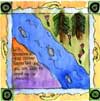 |
|
|
Literary
Weaving For a complete explanation, please see "Literary Weavings: Extending Response through the Arts" Nancy J. Johnson, Ph.D., Western Washington University Voices from the Middle, 4, 3, September 1997, pp. 36-39 National Council of Teachers of English |
| The Literary Weaving makes an excellent group or whole-class extension project that works well for students of all ages – and all levels of artistic experience and ability.
The photo on the left below shows how a whole-class weaving looks from a distance -- fusing all images into a colorful and serendipitous pattern. This weaving was designed from a whole-class reading of Roll of Thunder, Hear My Cry by Mildred Taylor. The example on the right shows close-up detail of a whole-class literary weaving based on four literature circle books: Tomorrow When the War Began by John Marsden, The House of Dies Drear by Virginia Hamilton, After the First Death by Robert Cormier, and Johnny Tremain by Esther Forbes. In this case, each student designed an individual strip based on the book he or she read. Then all strips from the class were woven together.
|
home
| site map | structure
| books | discussion
| written response
| themed
units | extension projects
|
Literature
Circles Resource Center © 2002 Katherine L. Schlick Noe School of Education Seattle University 900 Broadway Seattle, WA 98122 kschlnoe@seattleu.edu |
